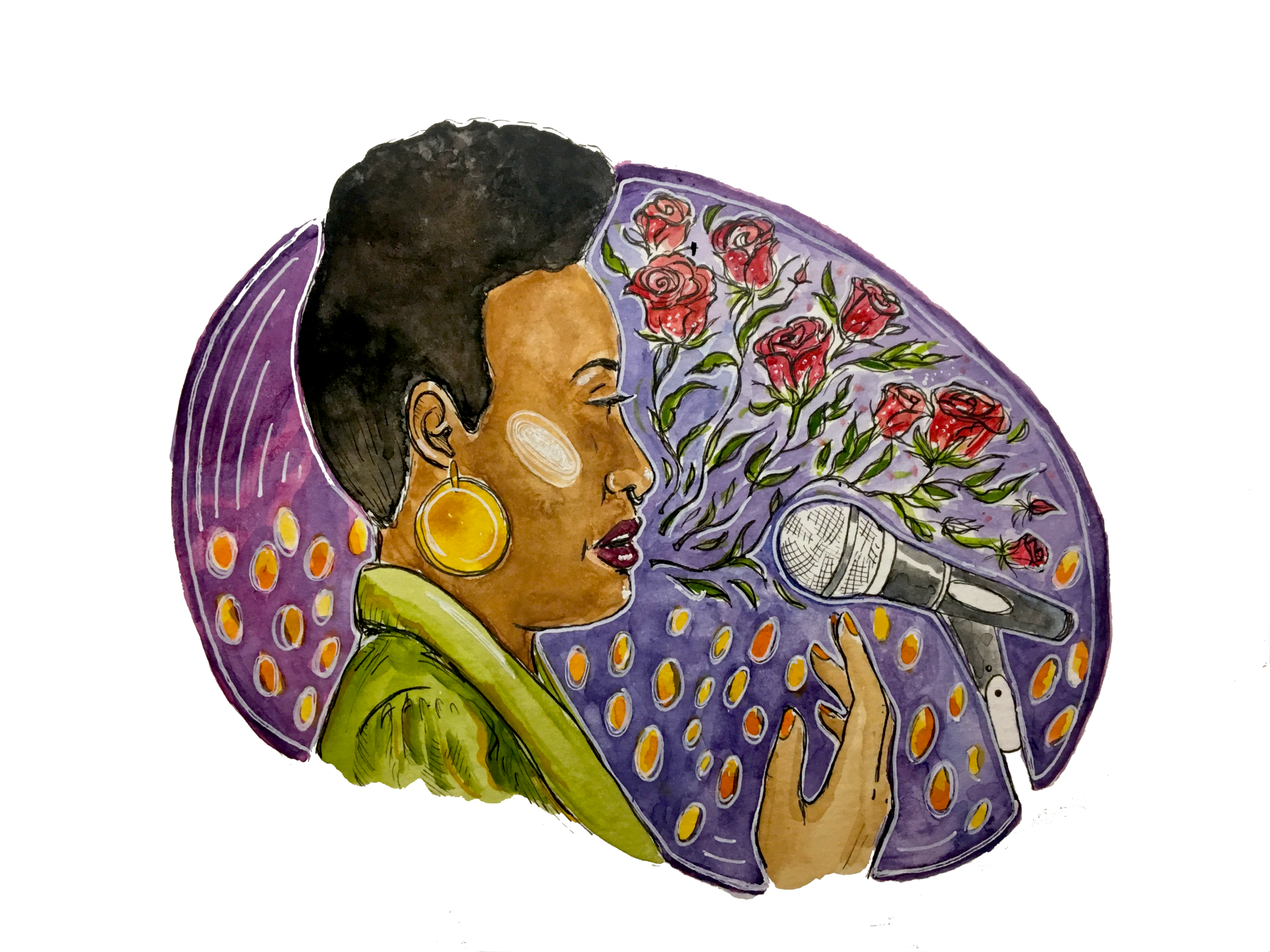By Alyssa Long
With her powerful poetry and a musical voice, New Orleans poet Sunni Patterson enchanted an intimate crowd at a recent Tuesday evening spoken word event at UC Santa Barbara’s MultiCultural Center. Patterson commanded the dimly-lit space, alternating between performance and warm conversation with the audience.
“Great ancestors, you are breath, you are bridge, you carry us over tumultuous time,” she recited, beginning a poem about black heritage and historical injustice.
My role is to be a reminder of ancestral remembrance, she said. Patterson’s work combines her Southern black heritage, grassroots activism, and a distinctly modern style. Below is a recording of another of her pieces, asserting her autonomy over her identity.
“We often say that living in New Orleans is an act of resistance,” Patterson said. She described the area as both a home and a burial ground, where its residents avoid talking about slavery’s legacy on the city’s culture. When people start digging to build a pool, she said, they often find bones in the ground.
Patterson works with an organization called Paper Monuments, which decorates New Orleans neighborhoods with murals and posters to combat erased histories by highlighting the city’s thriving black culture.
Shifting the conversation to women and writing, Patterson said, “We birth these babies, we have all these things we need to do, but still we must write.” She performed a dynamic piece called “Wild Women,” likening women to forces of nature. “Wild women are not to be tamed. Only admired,” she said.
Illustration by Alyssa Long
Patterson emphasized the importance of taking words like “wild,” an adjective historically dominated by oppressors, and reclaiming them in art. “It’s wild because they can’t tame it,” she said, stressing that moving, growing, and living in spite of oppression are acts of freedom and decolonization. “[Reclaiming words] allows us to see that we built our lives on something that was intended to keep us in one space.”
Patterson described her creative process, explaining that she rarely writes a poem from beginning to end. Sometimes she starts from the end or the middle, and she compared this process to life itself. “We can’t always pinpoint when something begins,” she said.
Patterson also brings the rhythmic, musical qualities of her poetry into the music industry, collaborating with well-known rappers like Two Chainz. She noted that recording studios can seldom produce her New Orleans-inspired sounds, so she uses everyday items—a bowl and a spoon, her ring on a microphone stand, or an orange juice bottle— to construct her melodies.
She says that to combat creative block, it helps to reframe the block, to think of it as a need to permit the creativity to emerge again. She said that many artists believe in an illusion of separateness—an idea that one’s creativity is independent from oneself, coming and going as it pleases. In reality, creativity always exists in the artist, she says, and the solution is to take the necessary time to imagine what is possible.
Patterson ended the event by encouraging the crowd to see themselves and their own humanity in other people. She asked for every person to look into the eyes of someone sitting nearby. Audience members embraced the awkwardness of this exercise, laughing with their neighbors. As they left, those who attended described feeling “uplifted” and “honored” by Patterson’s engagement with her audience.
Alyssa Long is a second-year student at UC Santa Barbara, majoring in Communication. She is a Web and Social Media Intern with UC Santa Barbara’s Division of Humanities and Fine Arts.


